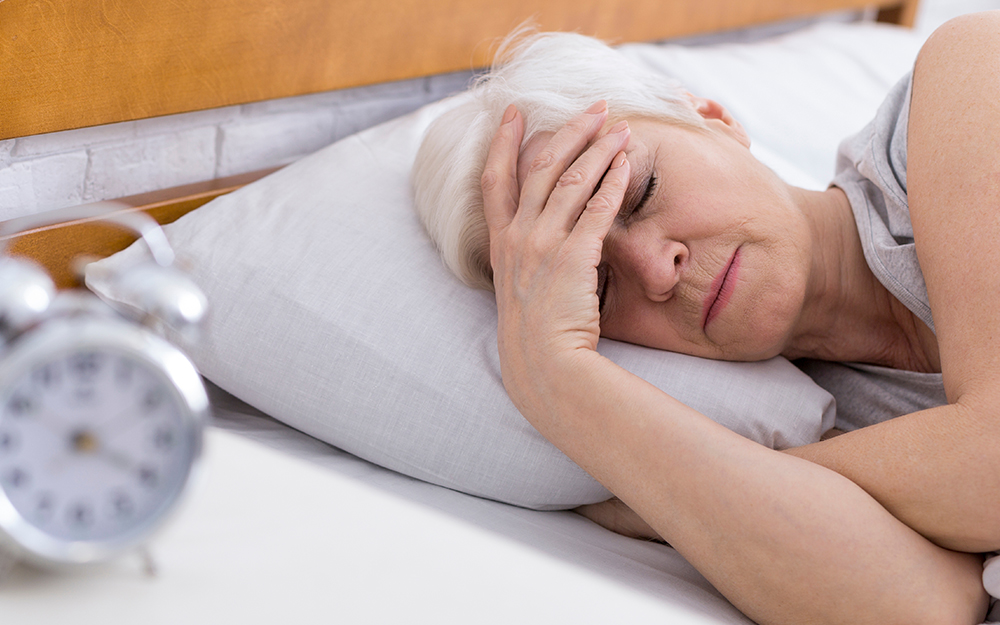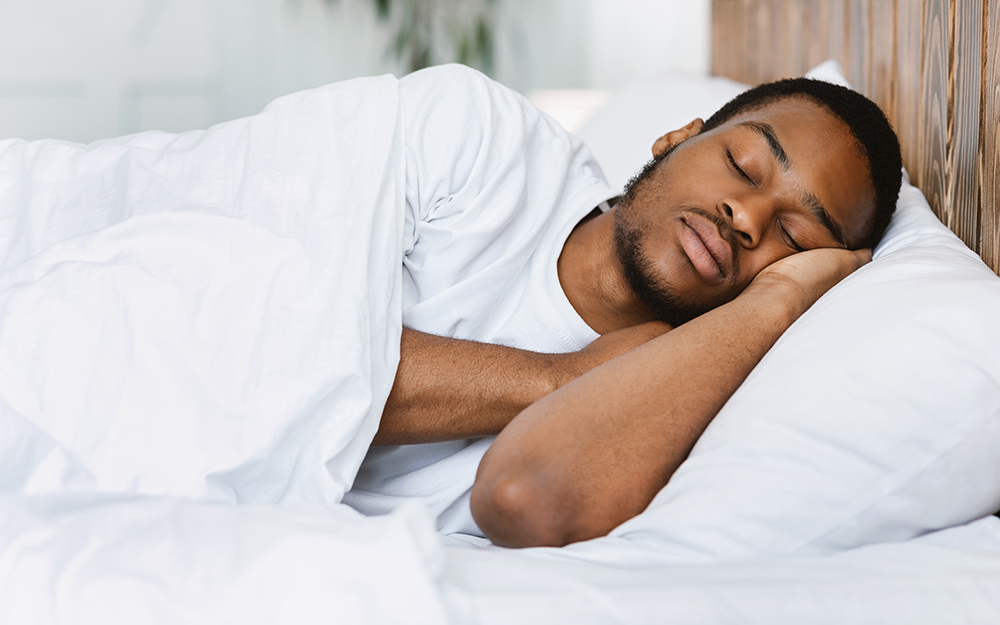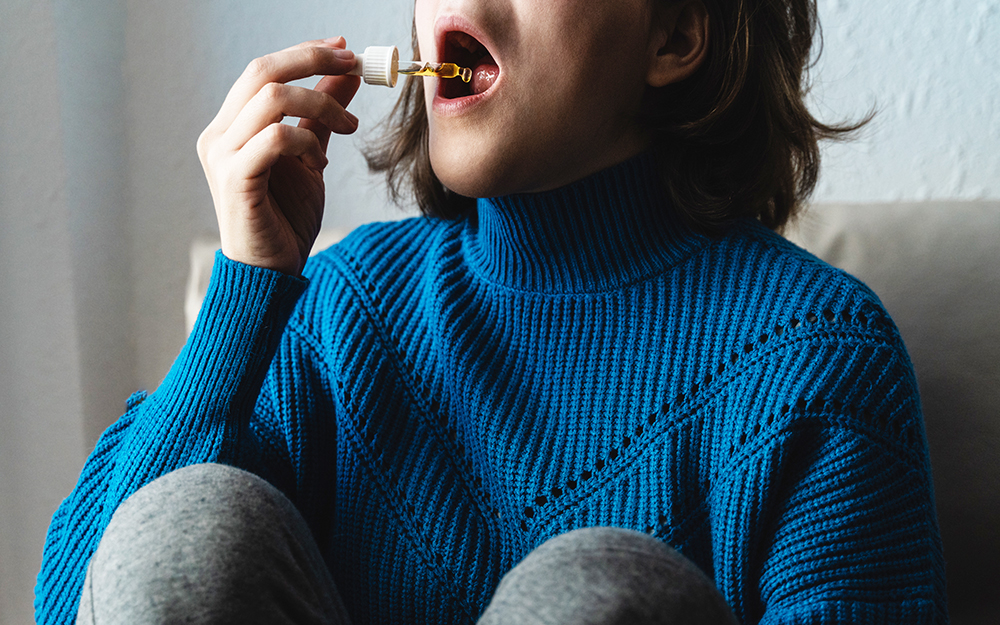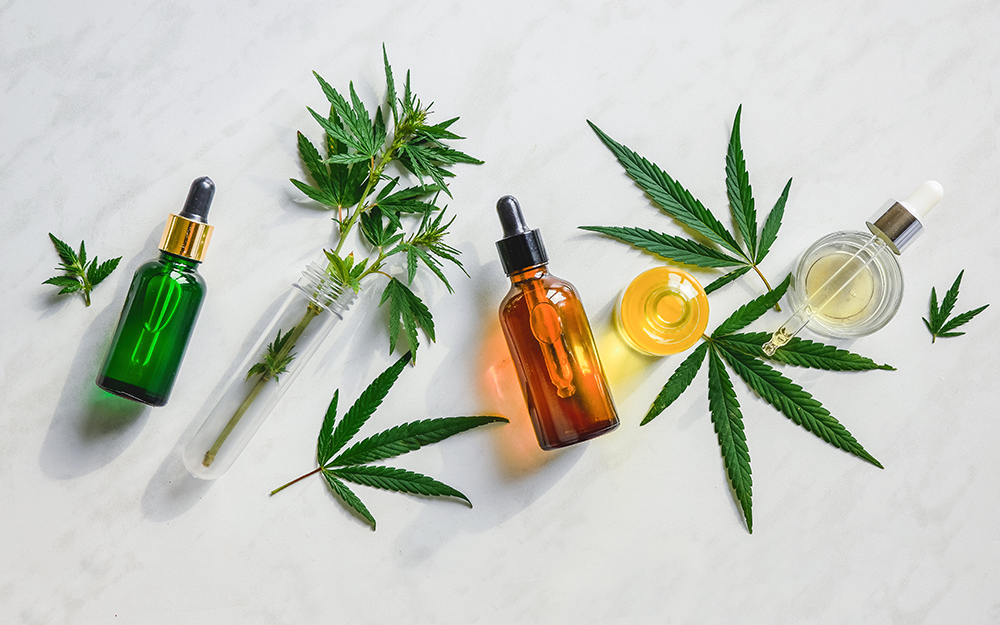Cannabidiol (CBD) oil is taking the spotlight in the world of wellness for its relationship with sleep. Studies have shown it might be able to improve your sleep quality, reduce the effects of sleep disorders such as insomnia and sleep apnoea, and help you to fall asleep faster.
In this post, we’ll explain everything you need to know about CBD oil and how it could potentially help you sleep better.
What is CBD?
CBD is a cannabidiol that is extracted from the hemp plant. The extract is then diluted with another oil such as coconut or hemp seed oil. It’s a natural remedy that experts believe may be able to improve sleep quality. This is due to the effects it can have on your brain and hormones.
Before we get started, it’s important to mention that CBD doesn’t create a psychoactive ‘high’ or change your state of mind at all. This is caused by Tetrahydrocannabinol (THC), which isn’t legal in CBD oil in the UK.
With that myth busted, we can help you answer the all important question - does CBD oil help you sleep better?

How does CBD oil improve sleep?
There has been a lot of research into CBD oil and how it interacts with your brain and hormones to reduce stress and relax your body. Even with this information, scientists still aren’t exactly sure how it works but it has proven to have positive effects on sleep. This includes helping you fall asleep faster and having a more restful night.
CBD became popular for its use in anxiety treatment but is rising to fame for its potential to help reduce the effects of sleep disorders, such as insomnia. This is because CBD has been proven to help with the root causes of sleep problems. Causes of sleep issues can include pain and stress-related disorders, such as PTSD.
How does CBD oil work?
This is the understanding experts currently have on how CBD interacts with your body:
- CBD is absorbed into your bloodstream and interacts with your endocannabinoid system (ECS), which is made up of neurotransmitters and cannabinoid receptors.
- The CBD interacts with your Cannabinoid (CB) receptors, which causes them to create endocannabinoids, which are your body’s own version of cannabinoids.
- The ECS and endocannabinoids act as a counterattack to your body's natural 'fight or flight' stress response.
- This means the stimulation of endocannabinoids helps to calm your body and reduce the effects of anxiety and stress.
What is insomnia?
Insomnia is when you have difficulties falling asleep or if you wake up constantly at night. This can lead to you feeling very tired and it can have a huge impact on many other aspects of your life.
There can be many different causes of insomnia including:
- Stress
- Anxiety
- Psychological disorders
- Pain
- Your sleeping environment (for example loud noises, bright lights)
Research has shown that there could be a positive link between insomnia and CBD oil. Read on to find out exactly how this could help you.

How can CBD oil help with insomnia?
CBD oil has been shown to help tackle some of the root causes of insomnia such as:
- Stress
- Anxiety
- Pain
It does this by working with the neurotransmitters in your brain to relax your body.
Before taking CBD to treat your insomnia, you should always check with a medical professional for advice.
1. How CBD helps manage stress and anxiety
In many cases, insomnia is caused by stress or stress-related disorders. Your cortisol (stress hormone) levels are usually higher in the morning, but if you suffer from insomnia they could be higher at night. This can make it difficult to switch off and fall asleep.
CBD interacts with your endocannabinoid system to help your body produce less cortisol. This then reduces the effects of stress-induced insomnia.
Studies show that CBD may have a positive effect on anxiety and sleep. However, these effects only lasted a short period of time and then participants said their sleep worsened again. This means that CBD may be a short term solution, but should not be relied on to provide lasting results.
3. How CBD helps manage pain
Insomnia can also be brought on by chronic pain, or any type of physical pain. Overall, there's a lot of evidence to suggest that CBD can help to soothe the pain you may be experiencing.
Experts believe that taking CBD oil can help to tackle pain. Therefore, if your insomnia is caused by physical pain, taking CBD oil could be beneficial for you.

Can CBD help sleep apnoea?
Sleep apnoea occurs when your breathing starts and stops while you’re sleeping. Some research has been conducted into the relationship between CBD and obstructive sleep apnoea (OSA), but there isn’t a lot of evidence to prove it can help.
This particular study suggests it may protect the brain from symptoms of OSA. This is because it has been shown to reduce some severe symptoms within adults who suffer from the condition.
You should talk to your doctor before using CBD to treat sleep apnoea.
Does CBD improve sleep quality?
CBD interacts with your endocannabinoid system and slows the release of stress hormones so you can unwind and get a more restful sleep.
Even if you don’t suffer from insomnia or any other sleep-related disorders, CBD oil can help you drift off to sleep more quickly and help you get the most out of your rest. Also, it can help your mind to block out any external distractions such as loud noises and bright lights.
The 5 stages of sleep
The main way in which CBD can improve your sleep quality is by helping your body progress through the 5 stages of sleep.
| Sleep Stage | What happens to your body |
| Stage 1 | You experience rapid eye movement (REM) behind your eyelids. During this stage, changes in your environment can often wake you up. |
| Stage 2 | Your body falls into a deep sleep. Your body temperature drops and you move into the non-rapid eye movement (NREM) stages. |
| Stage 3 | Your muscles fully relax and your breathing slows. |
| Stage 4 | Your muscles start to repair themselves and growth hormones are released. |
| Stage 5 | REM is activated again and you start to dream. Different sections of your brain are stimulated, your breathing gets shallower and your heart rate increases. |
If you suffer from a sleeping disorder, you may not reach the fifth stage of sleep or you might cycle through the 5 phases more slowly than others. This means you might not fully achieve deep sleep.
But how does this link to CBD? Well, it’s thought that CBD helps your body move into the NREM stages of sleep more quickly so you can get a night of deeper sleep.

What time should I take CBD oil at night?
If you’re taking CBD oil to help you sleep better, give it time to be released into your system. It’s recommended that you take it at least one hour before you go to bed. This gives you enough time to wind down with your normal nightly routine. By doing this, you can feel its full effects by the time you go to sleep.
However, you should always consult with your doctor about when to take it. The best time to take CBD depends on what you're using it for, the type of CBD you're taking - as well as the dosage.
Talk to a healthcare professional and follow the instructions on the label so you can get the most out of your CBD oil.

Are there any health risks with CBD?
No major health risks have been linked to the use of CBD yet, but there is a lot of research being conducted into both the short and long term effects of taking CBD. This is because it’s still relatively new and scientists are unsure of how exactly it interacts with your body.
The main risks recorded include:
- Potential damage to the liver
- Changing your metabolism
If you think you’re at risk or are concerned about taking CBD, talk to a healthcare professional.

Side effects of CBD
As with any medicine or natural remedy, CBD can come with some side effects.
This can include:
- Diarrhoea
- Changes in appetite
- Changes in weight
- Fatigue
- Drowsiness
- Jitteriness
- Differences in your body’s metabolic activity
- Liver issues
If you’re worried about any of these side effects, speak with your doctor.
What else can CBD oil be used for?
Even though we still don’t know a lot about CBD and its effect on the body, experts believe that it can potentially help with a variety of both physical and mental conditions.
Here are some other health conditions CBD can help with:
- Stress
- Anxiety
- PTSD
- Other stress-related disorders
- Chronic pain
- Some psychiatric disorders
- Seizures
- Some sleep disorders, such as insomnia
- Helping to reset your sleep cycle
- Nausea or vomiting
- Inflammation
- Depression
- Some types of acne
- High blood pressure
- Diabetes
Overall, there still needs to be a lot more research into the effects of CBD. However, it does look promising in relation to sleep.

Is CBD oil legal in the UK?
Yes, CBD oil is legal in the UK but suppliers have to follow strict regulations. For example, it has to come from a legal strain of industrial hemp approved by the EU.
You don’t need to worry about the oil getting you ‘high’. This is because THC, which produces this effect, isn’t legal in CBD in the UK.
Although CBD is legal over the counter at some pharmacies and drug stores, only a specialist doctor can prescribe it in rare cases.
More tips to improve your sleep
Taking CBD isn't for everyone. But, there are plenty of other ways you can improve your sleep. For more ways to get the best night's sleep, try out some of the tips below:
- Keep your bedroom quiet, calm and cool
- Take time to unwind before you go to bed
- Avoid caffeine and alcohol before sleeping
- Exercise regularly in the daytime to tire you out
- Reduce day to day stresses so your mind is calm before sleeping
- Try using soothing essential oils to relax you
Now you know all about CBD oil and how it can help you sleep better! We’ve covered how it works, how it can help with sleep disorders, its side effects and how it can improve your sleep quality.
CBD’s future with sleep certainly looks promising. Remember you should always consult with your doctor before taking CBD.


















